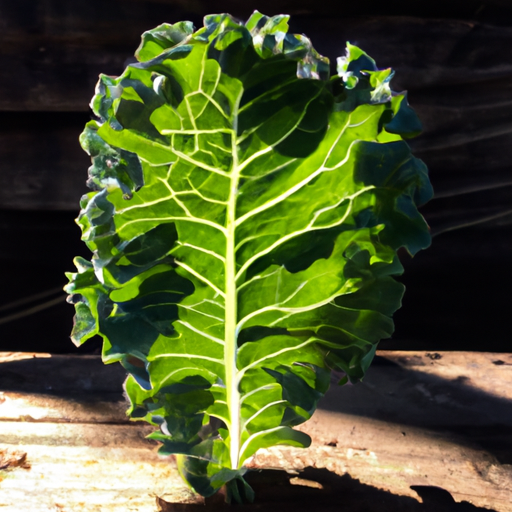Kale has been hailed as a superfood for its numerous health benefits. It is a member of the cruciferous vegetable family, which also includes broccoli, cauliflower, and Brussels sprouts. Kale is packed with vitamins, minerals, and antioxidants that make it one of the healthiest vegetables you can eat. In this ultimate guide, we will explore the nutritional benefits of kale and how it can improve your overall health.
Vitamins and Minerals
Kale is an excellent source of vitamins and minerals that are essential for optimal health. One cup of raw kale contains:
- Vitamin A: 206% of the daily value (DV)
- Vitamin C: 134% of the DV
- Vitamin K: 684% of the DV
- Folate: 9% of the DV
- Calcium: 9% of the DV
- Potassium: 9% of the DV
- Manganese: 26% of the DV
Vitamin A is important for healthy vision, while vitamin C is necessary for a strong immune system. Vitamin K is essential for blood clotting, and folate is crucial for fetal development during pregnancy. Calcium is necessary for strong bones, and potassium helps regulate blood pressure. Manganese is important for brain function and metabolism.
Antioxidants
Kale is also packed with antioxidants, which are compounds that protect your cells from damage caused by free radicals. Free radicals are unstable molecules that can cause oxidative stress, which has been linked to chronic diseases like cancer, heart disease, and Alzheimer’s disease. Kale contains several antioxidants, including:
- Beta-carotene
- Lutein
- Zeaxanthin
- Quercetin
- Kaempferol
Beta-carotene is converted to vitamin A in the body and is important for healthy skin and eyes. Lutein and zeaxanthin are important for eye health, and may reduce the risk of age-related macular degeneration. Quercetin and kaempferol are flavonoids that have anti-inflammatory and anti-cancer properties.
Weight Loss
Kale is low in calories and high in fiber, making it an excellent food for weight loss. One cup of raw kale contains only 33 calories and 2.6 grams of fiber. Fiber is important for digestion and can help you feel full for longer, reducing the likelihood of overeating. Kale also contains a compound called sulforaphane, which has been shown to reduce fat accumulation in the liver.
Heart Health
Kale is also good for your heart. The fiber in kale can help lower cholesterol levels, which can reduce the risk of heart disease. Kale also contains compounds called glucosinolates, which are converted to isothiocyanates in the body. Isothiocyanates have been shown to reduce inflammation and improve heart health.
How to Eat Kale
Kale can be eaten raw or cooked. It can be added to salads, smoothies, or stir-fries. Kale chips are a healthy and delicious snack that can be made by baking kale leaves in the oven with a little bit of olive oil and sea salt. Kale can also be used as a substitute for spinach or lettuce in recipes.
Conclusion
Kale is one of the healthiest vegetables you can eat. It is packed with vitamins, minerals, and antioxidants that can improve your overall health. Kale is also low in calories and high in fiber, making it an excellent food for weight loss. It can be eaten raw or cooked and can be added to a variety of recipes. If you’re looking to improve your health, consider adding kale to your diet.
- https://www.medicalnewstoday.com/articles/270435
- https://www.healthline.com/nutrition/10-proven-benefits-of-kale
- https://www.eatright.org/food/vitamins-and-supplements/types-of-vitamins-and-nutrients/what-is-vitamin-a-and-why-do-we-need-it
- https://www.eatright.org/food/vitamins-and-supplements/types-of-vitamins-and-nutrients/what-is-vitamin-c-and-why-is-it-important
- https://www.eatright.org/food/vitamins-and-supplements/types-of-vitamins-and-nutrients/all-about-vitamin-k
- https://www.eatright.org/food/vitamins-and-supplements/types-of-vitamins-and-nutrients/folate
- https://www.eatright.org/food/vitamins-and-supplements/types-of-vitamins-and-nutrients/calcium
- https://www.eatright.org/food/vitamins-and-supplements/types-of-vitamins-and-nutrients/potassium
- https://www.eatright.org/food/vitamins-and-supplements/types-of-vitamins-and-nutrients/manganese


